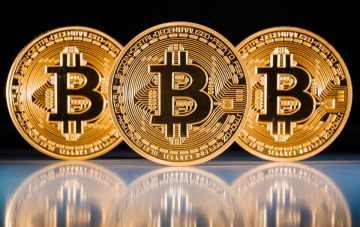Published by Taylor Financial Group
We recently had the pleasure to listen in on a call hosted by Dr. David Kelly, Chief Global Strategist and Head of the Global Markets Insights Strategy Team for J.P. Morgan Asset Management. As part of the question and answer session, Dr. Kelly addressed a question regarding Bitcoin. It was very interesting hearing his thoughts, as he shared his views on Bitcoin through the lens of an economist evaluating whether Bitcoin was truly a currency, and in particular how effectively it could provide the three main functions or services of money. So, let’s all take a trip back to school…
The Three Main Functions of Money
#1: Money serves as a medium of exchange to facilitate transactions. Without money, all transactions would have to be conducted by barter. As you may recall from your school days, barter involves the direct exchange of one good or service for another good or service (if you give me that turkey I will rake the leaves off your front lawn). A barter system has its challenges, as an exchange can only take place if you have two parties with the same wants (known as the “double coincidence of wants”). So in our example, unless you connect someone who needs a turkey and is willing to rake your lawn to get it, with someone who needs their lawn raked and has a turkey they are willing to part with, society is going to experience challenges executing transactions and exchanging goods and services.
#2: Money serves as a store of value. For money to be a medium of exchange, it must reliably and predictably hold its value over time. Moreover, it is vital that as a medium of exchange, that money be far more liquid than other stores of value such as land, a coin collection, or works of art. So, to be an effective store of value, money should not radically and unpredictably change in value, otherwise people will be reluctant to hold money as they could not rely upon it maintaining its value. For example, when I go to the store to buy a turkey with money, I want to know that my money is worth the same today as it was yesterday, and I am not paying 20% more for a turkey today because the value of money dropped 20% overnight (or intra-day).
#3: Money serves as a unit of account. Money must provide a common measure of value for the goods and services being exchanged. This allows the supplier or purchaser of a good or service to effectively make selling and purchasing decisions. Since money is used to advertise prices for goods and services, it is important that the price I set today for a good or service have some staying power, otherwise corporations like Walmart are going to be investing in track shoes for many of its employees to keep updating the prices on all of those turkeys (and as I am told, the other various items sold by Walmart).
Based upon Bitcoin not satisfying the three main functions of money, Dr. Kelly did not believe that Bitcoin is an effective form of currency as: (1) it is not widely accepted as a medium of exchange; (2) its perceived value changes significantly from day-to-day; and (3) these significant changes in value do not allow it to act as an effective unit of account. Moreover, unlike the dollar, which is legal tender issued by state authority (the United States of America), Bitcoin is not issued by any sovereign nation or its bank, and therefore is not considered to be legal tender by any nation.
The markets and governments will ultimately determine whether Bitcoin survives and becomes a currency of the future. In the meanwhile, remember that history is replete with “tulip bulb market bubbles,” where the rapid escalation of an asset’s price is followed by a massive selloff and price contraction.
At Taylor Financial Group, we have always proceeded with a measure of caution, and have never been ones to chase the latest fad. We will see how bitcoin shakes out, but we believe there are plenty of other ways to make money in this market.
As a salute to our return to school, please note that we utilized Cliffs Notes for several of the definitions in this article?. Thanks, Cliff!
Source:
Cliff Notes, Functions of Money
This material is for general information only and is not intended to provide specific advice or recommendations for any individual. To determine what is appropriate for you, consult a qualified professional.
The views stated in this letter are not necessarily the opinion of Cetera Advisor Networks LLC and should not be construed directly or indirectly as an offer to buy or sell any securities mentioned herein. Due to volatility within the markets mentioned, opinions are subject to change without notice. Information is based on sources believed to be reliable; however, their accuracy or completeness cannot be guaranteed. Past performance does not guarantee future results.
Securities offered through Cetera Advisor Networks LLC, Member FINRA/SIPC. Investment advisory services offered through CWM, LLC, an SEC Registered Investment Advisor. Cetera Advisor Networks LLC is under separate ownership from any other named entity.




